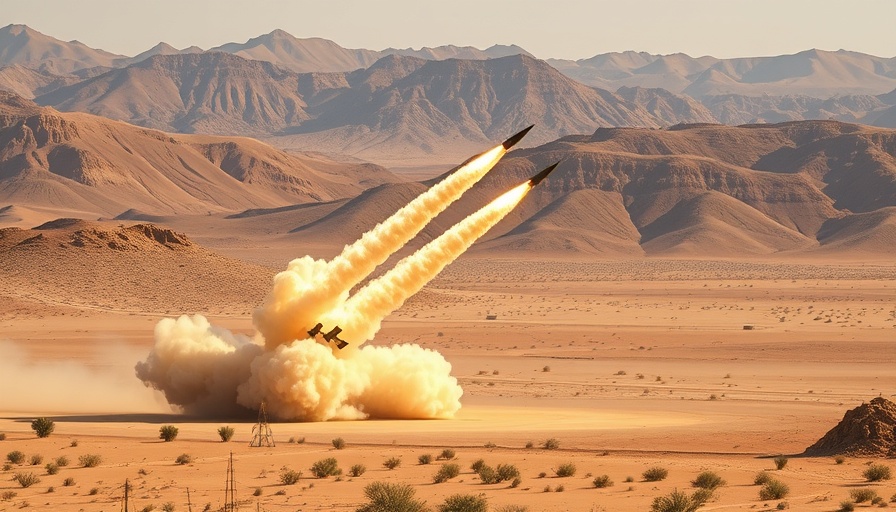
Understanding the Trump-Houthi Deal: What It Means for Israel
The recent announcement of an agreement between former President Donald Trump and the Houthi rebels has sent ripples through Washington and beyond, particularly in Israel. As the Yemeni rebels reportedly enhance their missile production capabilities, this development raises alarm. For Israel, which is deeply concerned about Iran’s influence across the Middle East, such a deal during crucial negotiations with Iran appears to be 'very bad news.'
The Broader Context of Israeli Security
Israel's security concerns extend beyond its borders, connecting to the complex web of relationships between the US, Iran, and regional actors like the Houthis. Exodus from Yemen adds another layer of difficulty, especially since Iranian support for Houthi militancy can enable attacks that directly threaten Israel. The recent Houthi engagements, including threats near the Israeli border, underscore the precariousness of resource allocations and military strategies Israel may need to employ.
A Shift in US Foreign Policy: Implications for Israel
The shift in US foreign policy with Trump’s leadership not only affects Israel's defense landscape but could also embolden Houthi forces to act with more aggression. Observers note that every new agreement—particularly one that appears to legitimize or support groups like the Houthis—opens the door for potential escalation. This could complicate Israel's ongoing efforts to ensure peace and stability in a region rife with tension.
The Iran Connection: Navigating Tension and Negotiation
The current negotiations with Iran around its nuclear program are of utmost importance to Israel. With the Houthis as proxies for Iranian influence, any agreement that strengthens the Houthis can exacerbate Israeli fears regarding Iranian military enhancements. This complex interrelation raises a crucial concern about the efficacy of diplomatic strategies and how they impact Israel’s defense strategies and overall regional stability.
Perspectives from Culturally Engaged Christian Leaders
Among faithful Christians concerned about religious freedoms, the implications of the Trump-Houthi deal are profound. There is a feeling that increased conflict could further endanger persecuted populations, especially in war-torn areas like Yemen and, by extension, regions influenced by Houthi dynamics. Culturally engaged Christian leaders advocate for a focus not just on political outcomes but also on humanitarian repercussions for the local populations impacted by such geopolitical maneuvers.
Striving for Interfaith Dialogue Amidst Chaos
Amidst the turmoil that surrounds this policy shift, there lies an opportunity for interfaith dialogue and understanding. Engaging across religious and cultural divides is crucial, especially in the context of global conflicts that often bear little respect for spiritual communities. Through such dialogue, Christians and leaders of other faith traditions can advocate for peace, justice, and humanitarian needs, reminding us that at the heart of these geopolitical issues are real people facing immense challenges.
Call to Action: Engaging in Advocacy for Peace
As ongoing tensions threaten the fragile balance in the Middle East, now is the time for concerned individuals to engage in advocacy. Whether through heard discussions, prayers, or organizing humanitarian assistance, your involvement can make a difference. Understanding these dynamics allows you to advocate effectively for peace and support initiatives that foster interfaith dialogue and provide relief to those suffering in conflict zones.
In conclusion, the Trump-Houthi agreement stands as a significant pivot point, particularly for Israel and regional allies. Understanding its implications and fostering peaceful dialogue remains crucial in these turbulent times.
 Add Row
Add Row  Add
Add 








 Add Row
Add Row  Add
Add 

Write A Comment